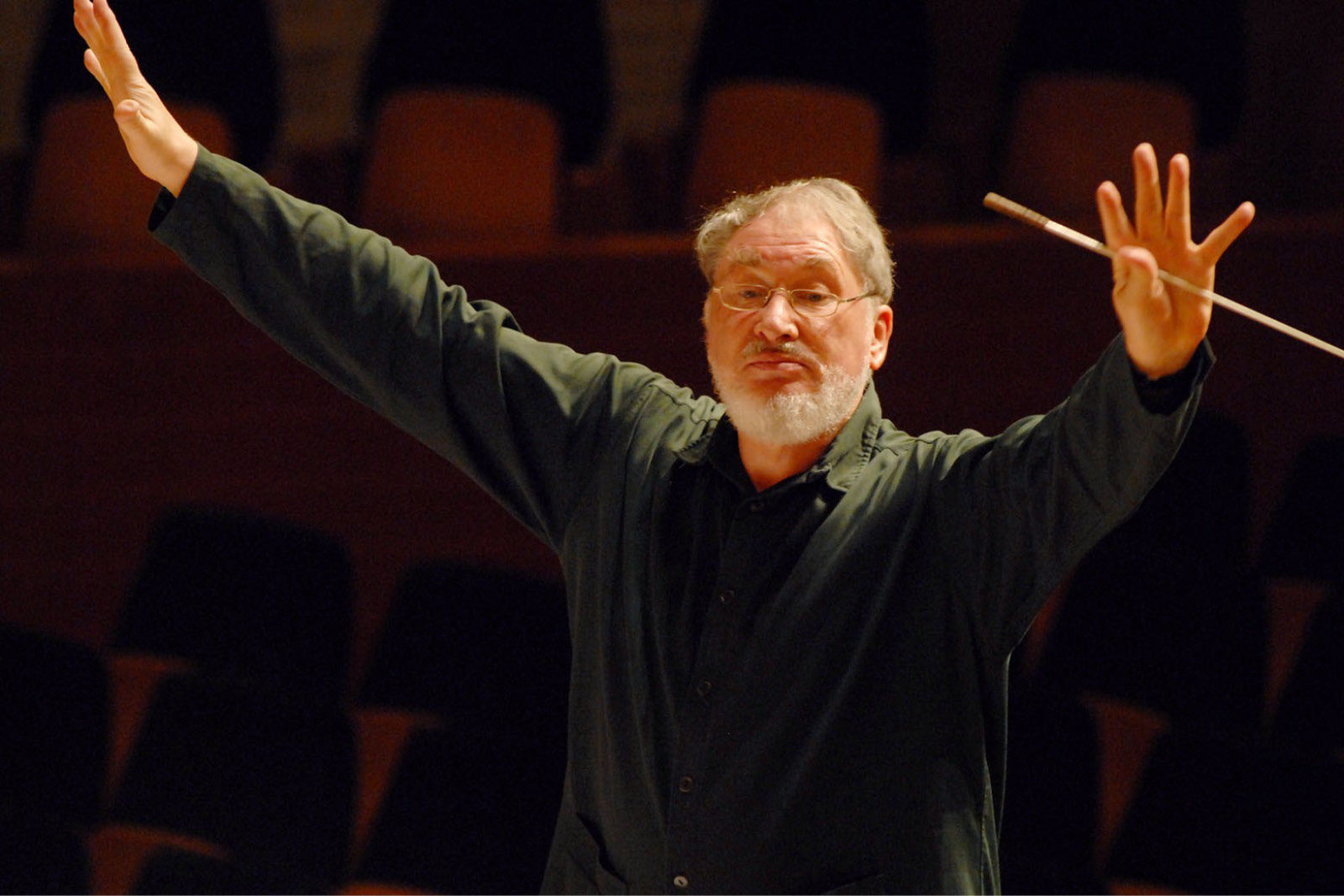The Tasmanian Symphony Orchestra’s Pandemonium, conducted by Marko Letonja, concert took its name from the middle work on the program: HK Gruber’s Frankenstein!!, subtitled “a pan-demonium for chansonnier and orchestra after children’s rhymes by HC Artmann”. Sometimes bizarre, sometimes hilarious, this work captured the imagination. Using his voice as an instrument, Gruber found an astonishing array of timbres and tonalities to bring the verses to life. Mysterious, evil, foreboding and shocking, with touches of maniacal laughter, he took us on a roller coaster of horror and humour.
 HK Gruber. Photo © Georg Anderhub
HK Gruber. Photo © Georg Anderhub
Unfortunately, it was difficult – at times impossible – to decipher the words. The verses were an integral part of the work, often relegating the orchestra to the background; I didn’t want my attention distracted by having to read them, so not being able to understand the text was a loss. Toy harmonicas, kazoos, plastic hose pipe whirlies all took their place beside the more traditional orchestral instruments, giving a feeling of a weird alternative reality that contrasted brilliantly with the straight-faced musicians. Described by Artmann as “a medley of intoxications”, the poems were on one level childlike, but had political overtones, with the monsters of childhood representing some of the monstrosities of political life. Letonja and the TSO negotiated the shifts from foreground to background skilfully for a performance that was atmospheric and unforgettable.
The concert opened with Mussorgsky’s Night on Bald Mountain (arranged by Rimsky-Korsakov). With its allusions to witches, dark spirits and the Black Mass it was a perfect choice to precede the Gruber. The orchestra produced an impressive palette of colours and there was some very beautiful solo playing, but to do true justice to the work it needs a bigger string section. Nevertheless it was a polished and enjoyable performance.
The final work on the program was the Overture and selected movements from Beethoven’s The Creatures of Prometheus. The overture is well-known to concertgoers, but the remainder of the work is heard less often. With its origins in Greek mythology, themes of immortality, bringing statues to life, and Prometheus himself having his liver eaten daily by an eagle, this was a fitting end to the Pandemonium program. There were some truly outstanding woodwind solos, but the performance was marred by some scrappy ensemble and poor intonation. Nevertheless, it was interesting to hear Beethoven’s work for the stage, which was both similar and different to his symphonic writing. With its foreshadowing of the third symphony, we glimpse the style and intensity of later Beethoven, but in general the music is gentler than his symphonies. Letonja and the orchestra captured this lightness of touch well for a performance of considerable merit.











Comments
Log in to join the conversation.